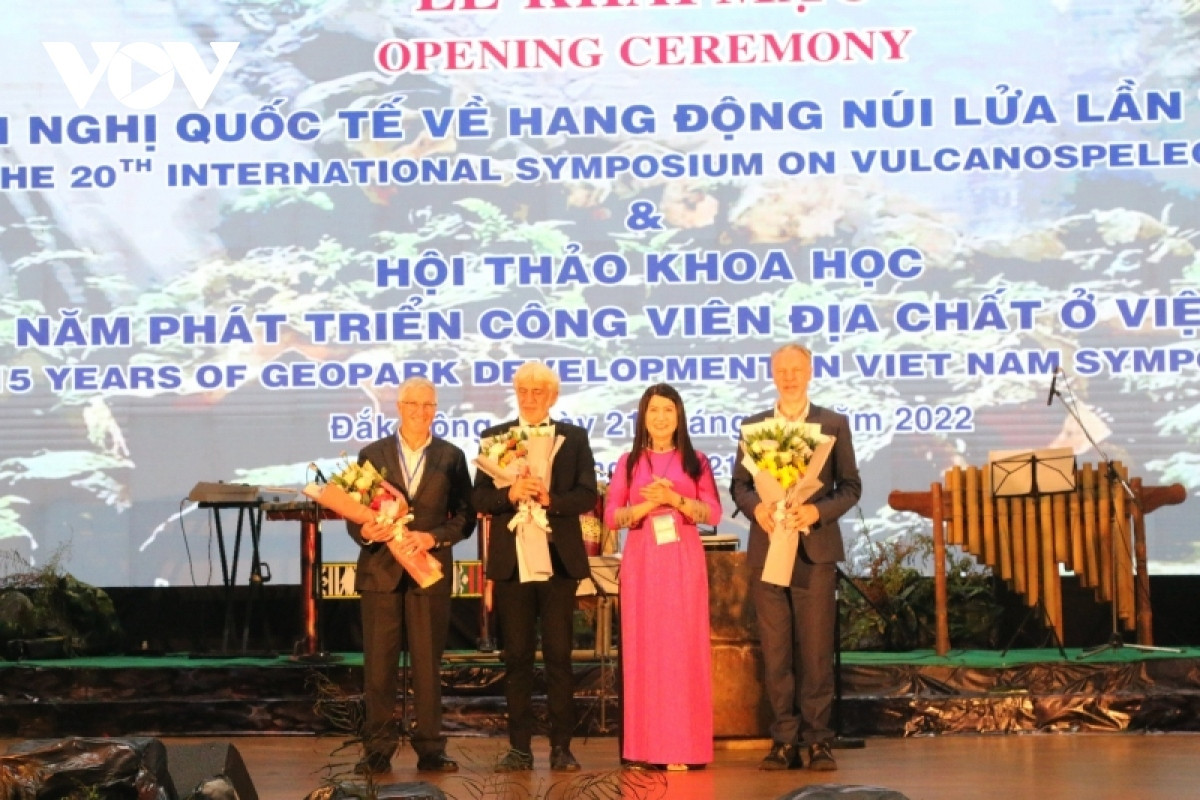

In his opening speech on November 22, Vietnamese Minister of Natural Resources and Environment Tran Hong Ha noted since it was first held in 1972 in Hawaii, ISV has become an important event for international experts and scientists in the field of volcanic caves to exchange information, research results and experiences in managing and promoting the value of the natural heritage for humanity.
Vietnam is proud to host the symposium for the first time alongside countries that are rich in volcanic cave resources such as Spain, Ecuador, Italy, Australia, the Republic of Korea, Jordan, Iceland and the United States, he said.
Ha expected that the 20th ISV would help strengthen cooperation and mutual understanding among countries in the region on conservation and sustainable exploitation of geological heritages, including geological parks.
Christian Manhart, chief representative of UNESCO in Vietnam, voiced UNESCO’s commitment to strongly support international cooperation in order to effectively implement sustainable development goals in general and to respond to climate change and protect biodiversity and geology in particular.
UNESCO has supported more than 60 international projects, led by 379 geologists from 92 countries, he said, adding the UNESCO geopark programme which recognizes geological heritage of international significance has grown rapidly since it was first created in 2015 by UNESCO member states.

The UNESCO official expressed his belief exchange activities to be held in the coming days in Dak Nong would help promote cooperation between UNESCO and geologists for conservation and sustainable use of volcanoes and volcanic caves towards the Sustainable Development Goals and the United Nations Development Programme - 2030 Agenda.
The symposiums are scheduled to last for five days, with major and sidelines activities including field excursions to several volcanic caves within the Dak Nong UNESCO Global Geopark, where more than 50 volcanic caves have been identified and explored.
The Dak Nong UNESCO Global Geopark is the largest and most rigorous volcanic cave system in Southeast Asia. More interestingly there is plenty of evidence of prehistoric human settlement inside several caves – a globally exceptionally rare phenomenon.
Source: VOV